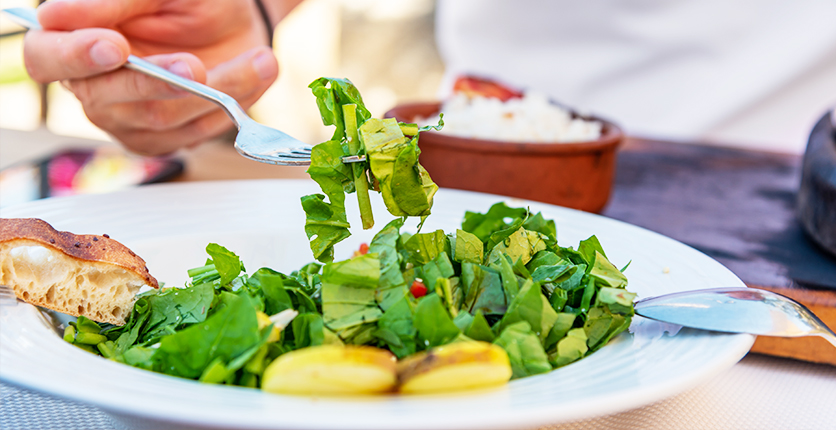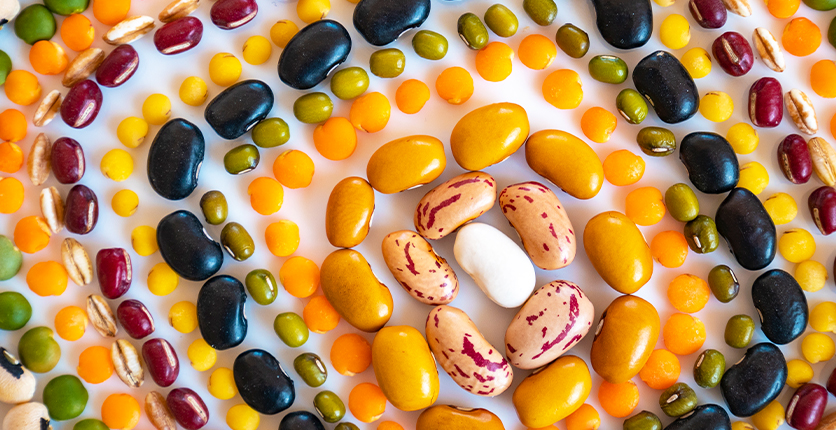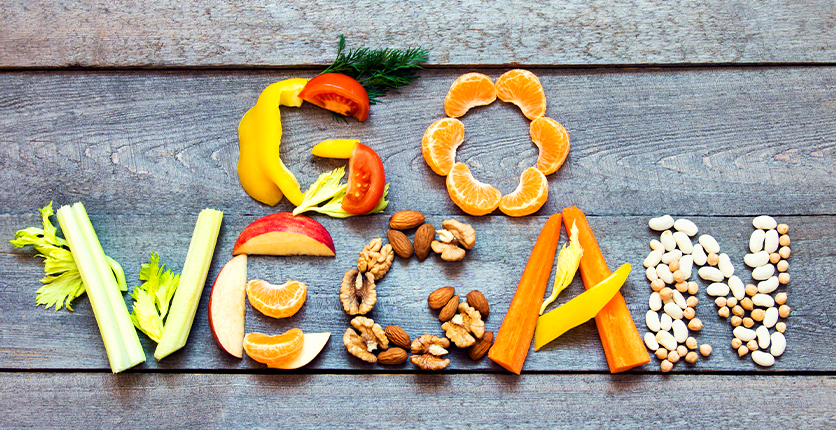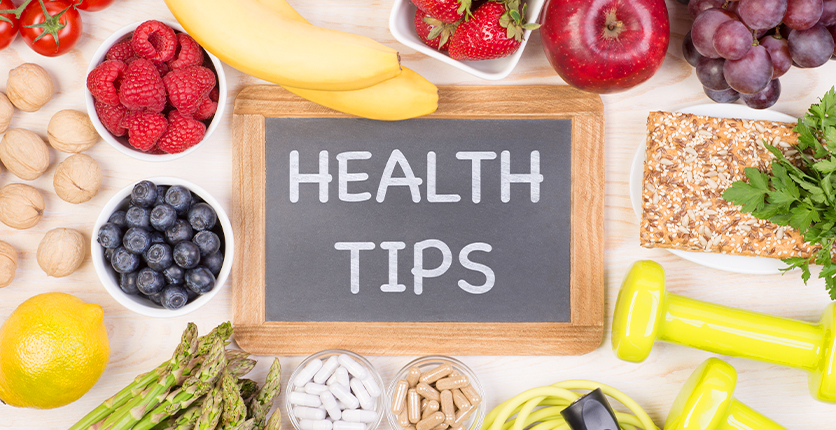A plant-based diet – one that omits meat, seafood, dairy, eggs and other animal by-products – offers a host of health and nutritional benefits and is one of the most environmentally friendly choices we can make. Nutritionist, cookery teacher and recipe developer Rohini Bajekal shares practical tips for embracing this way of eating.

Q: What are the main health benefits of following a plant-based diet?
Rohini: According to some studies, a healthy plant-based diet is known to help reduce the risk of coronary heart disease by 25%, certain cancers by 15% and Type 2 diabetes by at least 50%. This is particularly meaningful since many chronic illnesses are linked to an unhealthy diet. Cutting out meat and animal products also improves our energy levels.

Q: How can eating a plant-based diet help the environment?
Rohini: Animal agriculture is linked to zoonotic diseases, which increase the likelihood of pandemics. In fact, three in four emerging infectious diseases now come from animals, by way of the wildlife trade and factory farms. Our destruction of natural habitats has also brought us into closer contact with wild animals, thereby increasing the risk of zoonotic disease transmission.
In addition, the global food system is a major contributor to the ongoing climate crisis – animal agriculture is the leading cause of greenhouse gas emissions, land degradation, water scarcity and the loss of wildlife species.
A study by the University of Oxford found that if veganism were adopted globally, greenhouse gas emissions from food production would be cut by almost half. Avoiding meat and dairy products is therefore the single biggest way to reduce your impact on the environment.

Q: How can we transition to a plant-based diet, especially if we’re so used to eating animal products?
Rohini: It’s up to you if you want to take slow, small steps or embrace veganism overnight. Look for where you can swap meat, dairy, fish and eggs for protein-, iron- and zinc-rich foods such as lentils, tofu, tempeh and beans. Don’t be too restrictive, and experiment with some of the new vegan meat and cheese alternatives on offer. Be sure to take a vitamin B12 supplement, too, because vegan diets tend to be deficient in this vitamin. To stay on track and overcome challenges, it’s also important to make the process fun by experimenting with new recipes and remind yourself why you became vegan in the first place.

Q: What are some mistakes people make when transitioning to a vegan diet?
Rohini: One mistake is not eating enough, which can result in fatigue or unintended weight loss. Whole plant foods, like fruits, vegetables, whole grains, beans, tofu, lentils, seeds and nuts are high in fibre so they’ll leave you feeling fuller for longer, and, depending on how they’re cooked or prepared, you can eat more without worrying too much about calories.
Another common mistake is eating too many refined carbohydrates. Choose complex, unrefined ones like brown rice, oats and whole-wheat noodles, and starchy veggies like pumpkin and potatoes with the skin on.

Q: Beans are a big part of the vegan diet but how can we prepare them to make them more digestible?
Rohini: Flatulence and gas-induced discomfort are not unusual after eating beans. You’ll find beans easier to digest if you introduce them gradually into your diet, to get your gut bacteria used to them, and just build your tolerance over time. Second, rinse canned beans before using them, or, if using uncooked beans, soak and sprout them overnight before cooking. Third, cook your beans until they’re soft and easy to mash with a fork – undercooked beans can lead to tummy discomfort. Fourth, grate ginger onto cooked beans – it’ll relax the muscles in your digestive tract. Finally, eat mindfully and slowly. Chewing your food down to a pulp before swallowing makes it easier to digest.
Q: Is there anyone for whom the vegan diet might be unsuitable?
Rohini: According to the British Dietetic Association, “well planned plant-based and vegan diets can support healthy living at every age and life stage” and we know that millions of people are thriving on this way of eating.
Get more nutrition tips on Rohini’s website: www.rohinibajekal.com
Note: A vegan diet might not be suitable for everyone. Please consult your physician before starting on a vegan diet plan.
Have you tried going on a vegan diet? Share your experience with us at magnsman@sph.com.sg!







